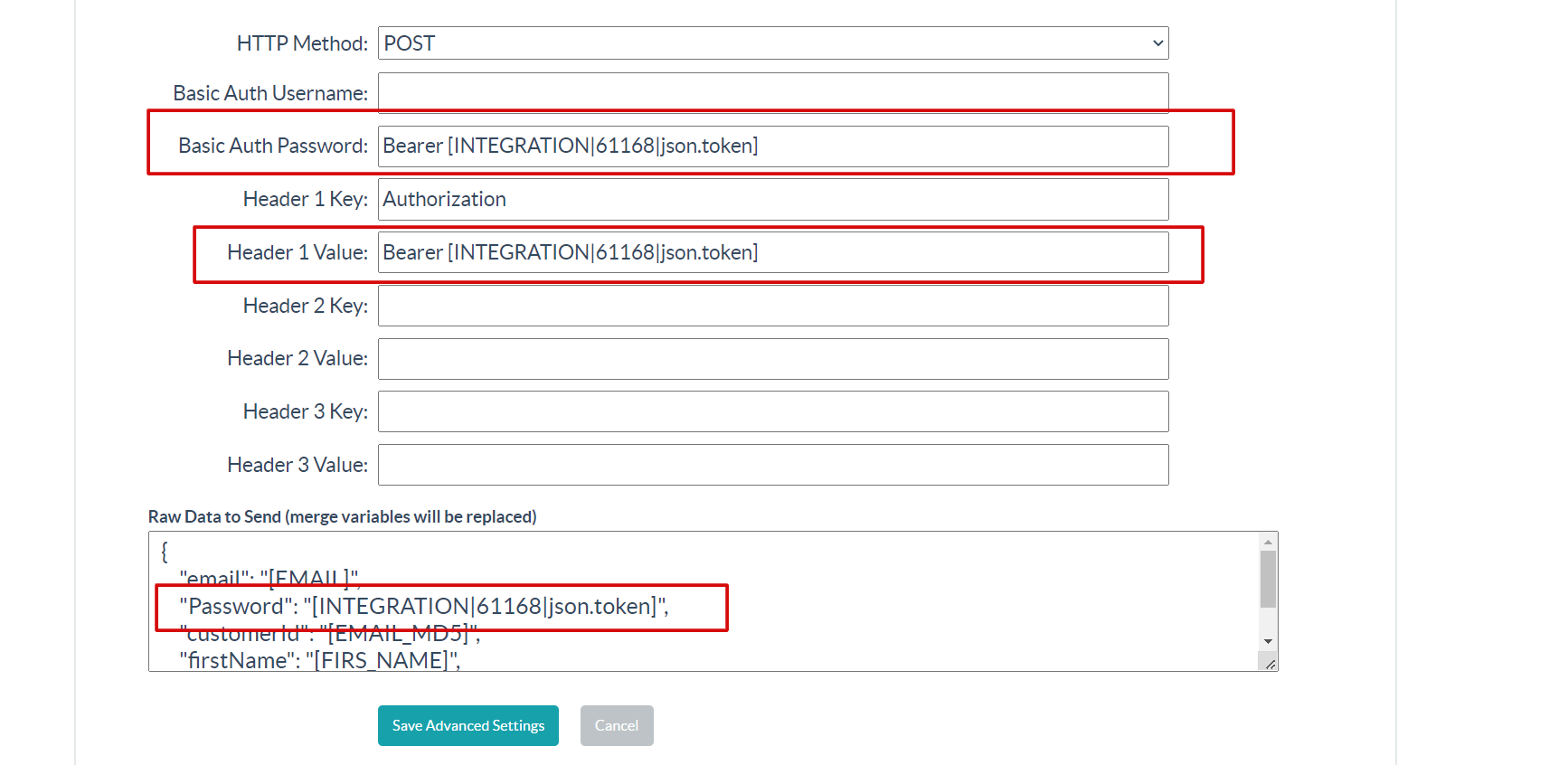Digioh Piping Integration is a powerful feature that helps execute multiple integrations at once.
In general, you can run another integration and reference its output all through the use of a special type of merge tag.
The Merge Tag can be used in Digioh Integration following fields:
- API POST URL
- Headers

Here are a few examples of how it could be formatted:
[INTEGRATION|12345]
[INTEGRATION|json.token]
[INTEGRATION|12345|json.
The general format is:
[INTEGRATION|{integration id}|{response parser}|{fallback value}]
Piping Integration Main Features:
- Both {response parser} and {fallback value} are optional.
- If {response parser} is left blank, then we will use the literal/entire response from the Integration.
- Right now, our only other option for {response parser} is “JSON” with dot notation. We may add other options in the future. We support up to 5 levels of dot notation for accessing the deepest parts of your payload.
- The {fallback value} will be used if the Integration response is blank, or if it is a server exception or web exception on our end. We don’t analyze the payload itself to determine if there is a custom partner error message within the payload.
- You can chain an unlimited number of Integrations using this method, but each unique Integration ID can only be referenced once within a chain (to prevent infinite loops).
- Right now, this feature is only supported for “API Form Post” Integration types. We may extend this to other Integration types in the future.
If you have any questions about setting up Digioh Piping integration, send us an email, and we’ll be glad to help!
